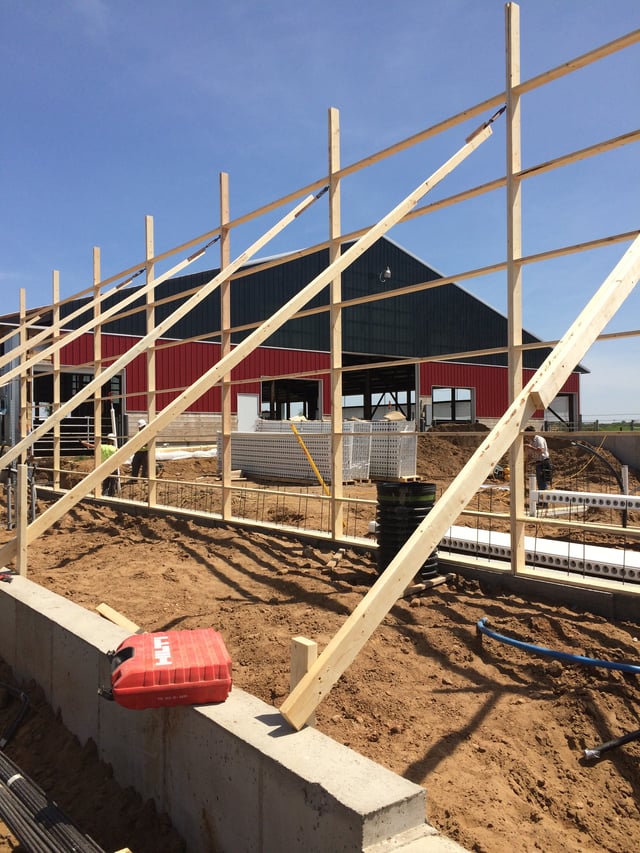A customer recently used GatorBar™ to fulfill a building specification for a milking parlor on a dairy farm. The concrete reinforcement was to be non-conductive to help reduce stray voltage. This intrigued us, so we did a little digging...
Stray current is a phenomenon that occurs on modern farms that are powered by electricity. Electrical systems are always grounded for safety and reliability reasons. At the location of the grounding, small amounts of electricity flow through the earth causing a small voltage buildup. When an animal comes in contact with these areas, that small, seemingly insignificant, voltage can shock the animal. This amount of electricity is rarely enough to affect humans, but animals are much more sensitive to these electric shocks.
The issue of stray voltage has been studied for decades. Over the past twenty years, countless farmers have filed suits against their utility companies, for loss of production and damage to their herds regarding this problem. While utility companies have funded studies that claim stray voltage rarely has any effect on livestock, it is still a very big concern to farmers.
Neuvokas recently delivered GatorBar™ to S.D. Ellenbecker of Athens Wisconsin. GatorBar™ is a non-conductive, high strength alternative to steel rebar for reinforcing concrete. They were building a 16 station milking parlor for a local dairy farmer. As Neuvokas COO Ken Keranen talked with the crew and the project owners, it was apparent that the issue of stray voltage was certainly a large area of concern. The farm owner referenced another local dairy farmer who recently built a million dollar milking parlor on a geological fault line. Any stray voltage makes its way back to the substation along the fault line. The cows are skittish and won’t go near the walls of the milking parlor because of the high levels of stray voltage. “Their best bet is to file bankruptcy, level it, and start over,” he said. “We are not building on a fault, but it is good to be safe and take precautions.”

Milking parlor construction by S.D. Ellenbecker.
Small amounts of stray voltage can’t be avoided when operating a modern farm. When the level is low enough, farm operations are not affected. However, when the level is too high, these small electrical shocks can be uncomfortable for the animals, causing behavioral changes. Cows may become reluctant to enter the milking parlor or feeding facility and rush out when they are done. Kicking, or restless behavior during milking is also a sign that there may be too much stray voltage. Cows typically take long drinks of water when feeding. If they are lapping at the water like a dog, there may be too much stray voltage and some cows may drink less, leading to loss of milk production. In extreme cases, animals may fall ill and die. Studies have shown that every animal has its own level of tolerance, so some may be more sensitive to stray voltage than others.
To help combat this problem, a non-conductive reinforcement was specified in the design of the milk parlor. We were happy to be a part of the solution by offering our cost effective and non-conductive rebar, GatorBar™!
------------------------------------------------------------------------------------------------------------------------------------
To view more pictures of this project and others using GatorBar™ reinforcement, click below!



